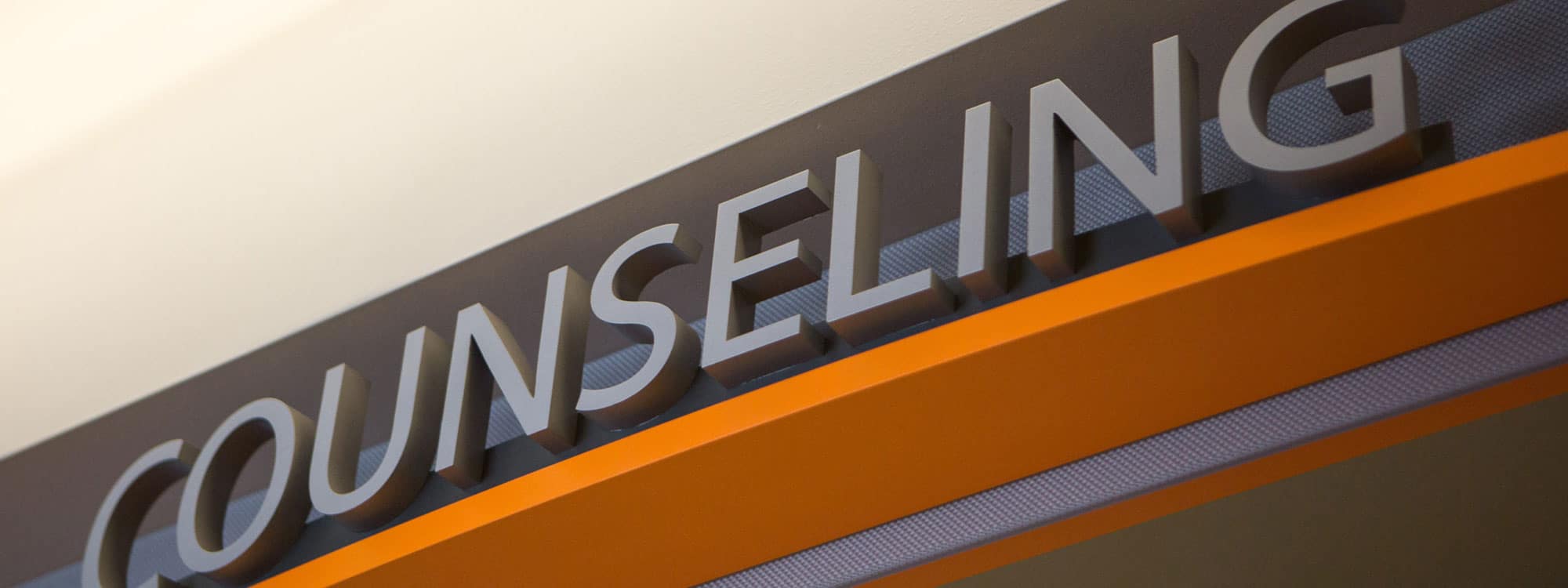The Student Counseling Center is the university’s primary facility for mental health services for students. The Student Counseling Center exists to help you and offers short-term individual and group therapies. Staff members provide a variety of short-term services for currently-enrolled students to address problems ranging from mild situational stresses to acute mental health conditions.
Good mental health is key to ensuring that you are holistically well. It’s important to know where your stress or anxiety comes from in order to know how to manage those emotions.
Type of Appointments
Triage
When you call our office, we will schedule an initial appointment with a member of the triage team, a confidential service offered in collaboration with the Center for Care and Resilience. Once you are scheduled for a triage appointment, we will send a link to forms to complete online prior to your assessment. This triage appointment is your starting point. During this session, you and a mental health professional will discuss your treatment needs and options, including if you wish to be seen in person or via Telehealth. Depending on your needs, you may be scheduled with the Student Counseling Center for group therapy or be scheduled for short-term individual therapy. Or, you may be connected to supportive resources outside UT or in the community such as longer-term therapy or specialty treatment. If an outside resource is the best option depending on your needs, a care coordinator in the Center for Care and Resilience can help provide individualized support in finding off-campus care.
Individual Therapy
If you are referred for individual therapy, you will leave your triage appointment with a scheduled intake appointment. Prior to your first therapy appointment, you will receive a link to some additional forms to help start your therapy journey.
At your first individual therapy appointment, you will be able to describe your concerns, and you and your clinician will establish goals for therapy. It is important that you approach individual therapy with a frame of reference that is ready to work, as change is a process that takes active involvement from you! Individual sessions are usually scheduled for every other week for about a semester and may be less frequent as you are improving. Many students have their needs met in just a few sessions.
Group Therapy
In group therapy, a small number of students meet weekly with one or two group therapists. Groups are often the best way for people to receive counseling services. In group therapy, members share concerns, listen to each other, give, and receive feedback, offer support to one another, express feelings, and learn more about how they interact with others.
We offer different types of groups that fall into two broader categories: skills groups that focus on teaching you tools for change or symptom management and process groups which are more focused on helping group members examine their issues in a therapeutic group setting.
Urgent or Crisis Appointment
Some situations require urgent care. Students experiencing any of these situations may call or visit the Student Counseling Center during business hours to be connected to a confidential mental health counselor for emergency support:
- If you worry that you may act on thoughts to hurt yourself (suicide or self-harm)
- If you worry that you may act on thoughts to hurt others
- If you have not slept for more than 48 hours
- If you have recently been physically and/or sexually assaulted
- If you recently experienced the death of a loved one or a sudden loss
Outside of regular business hours and during university holidays, the Student Counseling Center’s phone line is answered by a 24/7 crisis phone counselor to provide support, assessment and resources to help keep you and others safe until our offices are open again.
The after-hours crisis counselor cannot make or change appointments at the Student Counseling Center for you. As always, in cases of an immediate threat of harm to self or others, please dial 911 for emergency response, on or off campus.
Community Referrals
There are times when a student’s mental health needs require a referral to a community provider. Other times a student may need more urgent, intensive, or longer-term care than what we can provide. In such cases, we will assist the student in finding an appropriate provider in the community. We can also directly connect you with a care coordinator in the Center for Care and Resilience if you want more individualized support in navigating seeking care in the community.

